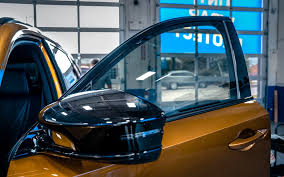The practice of tinting towtrucknewarknj.com has become increasingly popular, not merely for aesthetic reasons but for the numerous benefits it offers in terms of comfort, safety, and energy efficiency. Whether applied to vehicles, homes, or commercial buildings, window tinting serves as a practical solution that goes beyond just adding a touch of style. Let’s delve into the advantages and considerations surrounding tinted windows.
What is Window Tinting?
Window tinting involves applying a thin, transparent film to glass surfaces, altering its light transmission properties. This film is typically made from polyester and can vary in thickness, composition, and darkness levels. It’s a versatile process available in various shades and styles to suit individual preferences and practical needs.
Advantages of Tinted Windows:
1. Heat Reduction:
One of the most significant advantages of window tinting is its ability to reduce heat inside a vehicle or building. Tinted films can block a significant portion of solar heat, keeping interiors cooler during hot weather. This not only enhances comfort but also decreases reliance on air conditioning, thereby potentially lowering energy costs.
2. UV Ray Protection:
Tinted windows are effective at blocking harmful ultraviolet (UV) rays from the sun. Prolonged exposure to UV radiation can cause skin damage, premature aging, and increase the risk of skin cancer. Window tinting helps mitigate these risks by blocking up to 99% of UV rays, creating a safer environment for occupants.



